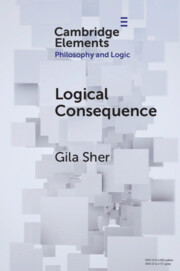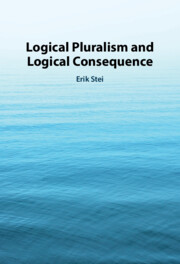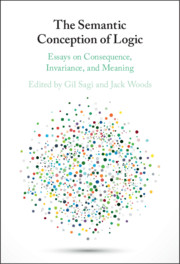Logical Consequence
To understand logic is, first and foremost, to understand logical consequence. This Element provides an in-depth, accessible, up-to-date account of and philosophical insight into the semantic, model-theoretic conception of logical consequence, its Tarskian roots, and its ideas, grounding, and challenges. The topics discussed include: (i) the passage from Tarski's definition of truth (simpliciter) to his definition of logical consequence, (ii) the need for a non-proof-theoretic definition, (iii) the idea of a semantic definition, (iv) the adequacy conditions of preservation of truth, formality, and necessity, (v) the nature, structure, and totality of models, (vi) the logicality problem that threatens the definition of logical consequence (the problem of logical constants), (vii) a general solution to the logicality, formality, and necessity problems/challenges, based on the isomorphism-invariance criterion of logicality, (viii) philosophical background and justification of the isomorphism-invariance criterion, and (ix) major criticisms of the semantic definition and the isomorphism-invariance criterion.
Product details
September 2022Paperback
9781108986847
75 pages
228 × 150 × 5 mm
0.16kg
Available
Table of Contents
- 1. Introduction
- 2. The Semantic Definition of Logical Consequence and its Roots in Tarski
- 3. Solution to the Challenges of Necessity, Formality, and Logicality
- 4. Philosophical Perspective on Logicality and Other Significant Matters
- 5. Criticisms of the Semantic Definition of Logical Consequence
- 6. Criticisms of the Isomorphism-Invariance Criterion of Logicality
- 7. Conclusion.




